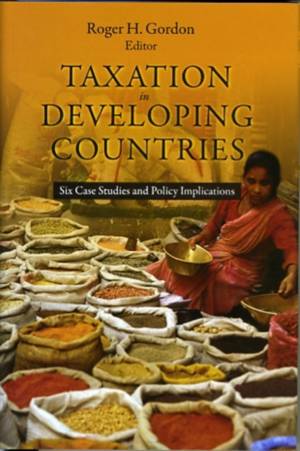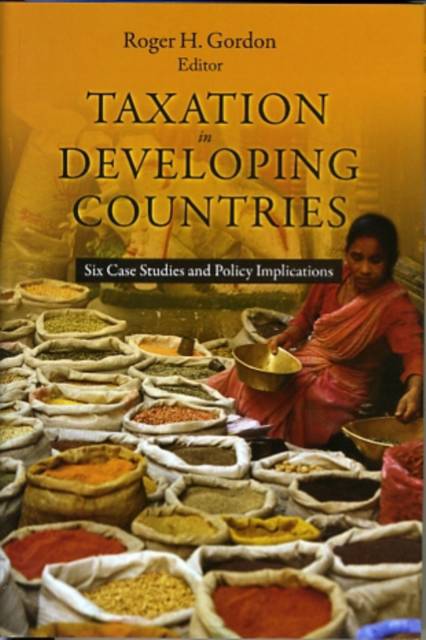
- Afhalen na 1 uur in een winkel met voorraad
- Gratis thuislevering in België vanaf € 30
- Ruim aanbod met 7 miljoen producten
- Afhalen na 1 uur in een winkel met voorraad
- Gratis thuislevering in België vanaf € 30
- Ruim aanbod met 7 miljoen producten
Zoeken
Taxation in Developing Countries
Six Case Studies and Policy Implications
€ 127,45
+ 254 punten
Omschrijving
Taxes are a crucial policy issue, especially in developing countries. Just recently, proposals to raise middle-class taxes toppled the Bolivian government, and plans to extend or increase the value-added tax caused political unrest in Ecuador and Mexico. Despite the impact of tax policy on developing countries, a comprehensive study has yet to be written. Treating Argentina, Brazil, India, Kenya, Korea, and Russia as key case studies, this volume outlines the major aspects of current tax codes and explores their economic and political implications.
Examples of both the poorest and wealthiest developing countries, Argentina, Brazil, India, Kenya, Korea, and Russia uniquely demonstrate the diverse fiscal problems of tax reform. Each economy relies heavily on indirect and corporate income taxes, though recently some have reduced their tariff rates and have switched from excise to value-added taxes. There is a large, informal economy in most of these countries, and tax evasion by firms is a significant concern. As a result, tax revenue remains low, even though rates are as high as those in developed economies. Also, unconventional methods to collect revenue have been implemented, including bank debit taxes, state ownership of firms, and implicit taxes on individuals in the informal sector. Exploring these and other concerns, as well as changes in tax law, administration, and fiscal pressures, this comprehensive anthology clarifies the current landscape of tax administration and the economic future of the world's poorer economies.Specificaties
Betrokkenen
- Uitgeverij:
Inhoud
- Aantal bladzijden:
- 352
- Taal:
- Engels
- Reeks:
Eigenschappen
- Productcode (EAN):
- 9780231148627
- Verschijningsdatum:
- 5/07/2010
- Uitvoering:
- Hardcover
- Formaat:
- Genaaid
- Afmetingen:
- 160 mm x 231 mm
- Gewicht:
- 566 g

Alleen bij Standaard Boekhandel
+ 254 punten op je klantenkaart van Standaard Boekhandel
Beoordelingen
We publiceren alleen reviews die voldoen aan de voorwaarden voor reviews. Bekijk onze voorwaarden voor reviews.










